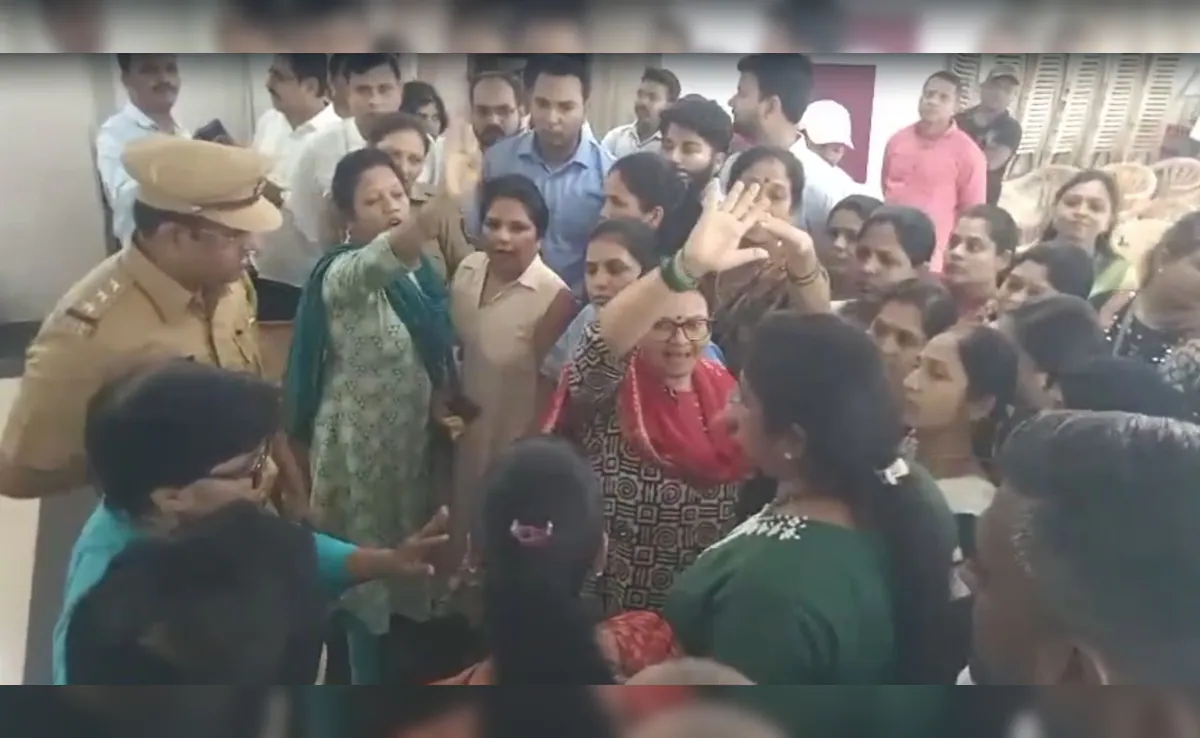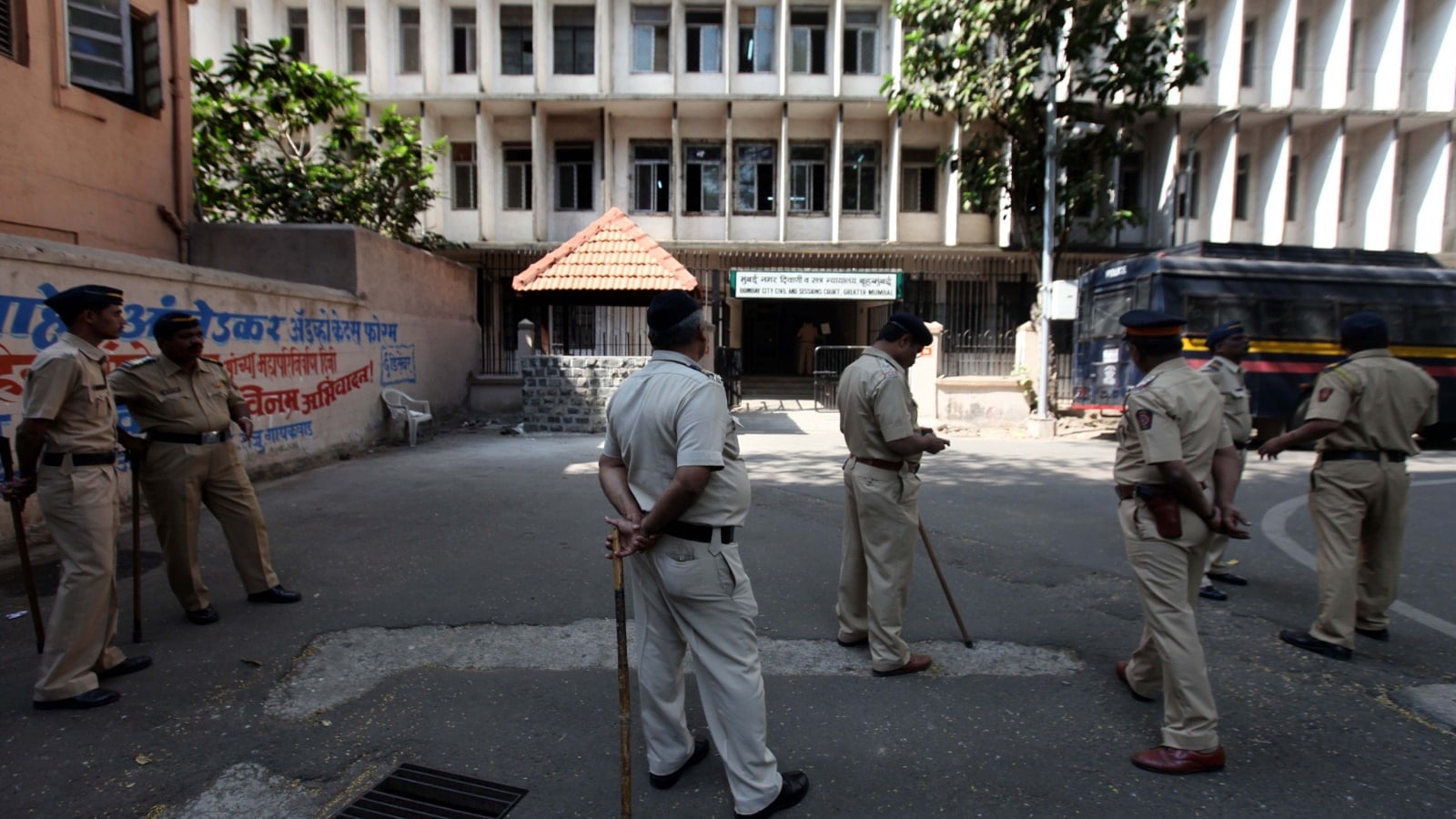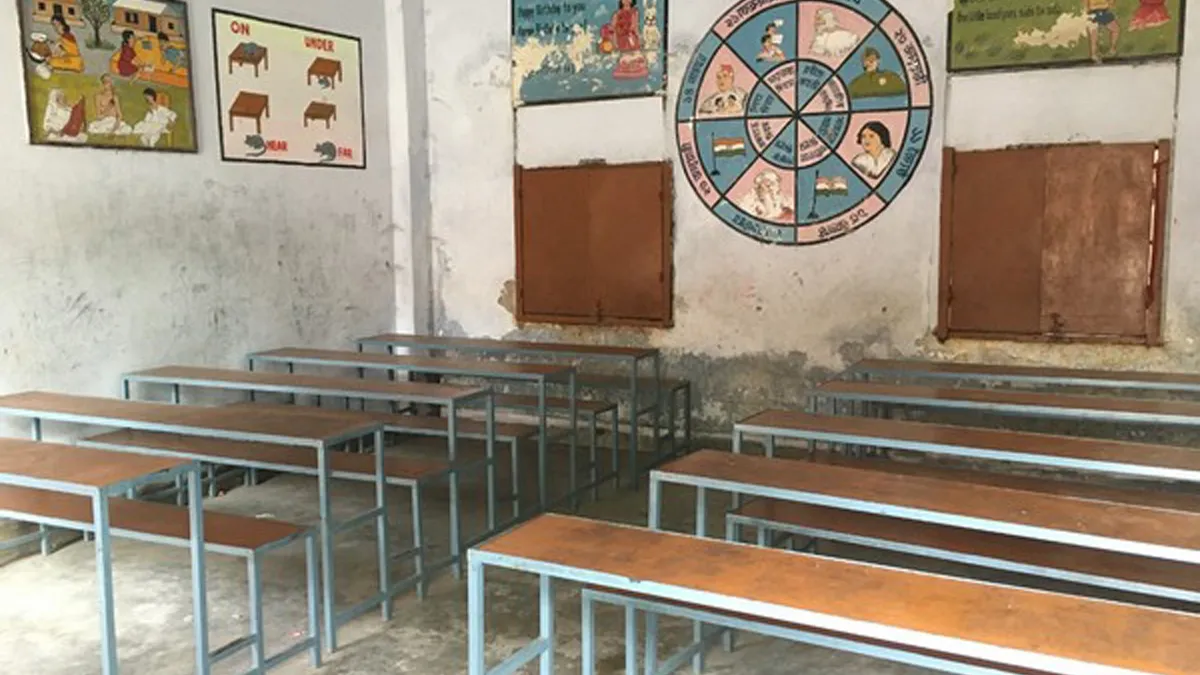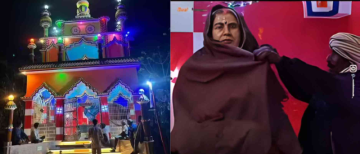In what can only be described as a horrifying violation of trust, dignity, and basic human decency, a private school in Maharashtra’s Thane district has made national headlines after young girl students—some as young as ten—were allegedly forced to strip to prove they were not menstruating. This incident, which took place at RS Damani School in Shahapur, is not just a case of bad judgment or poor school policy—it is a profound betrayal of what educational institutions are meant to stand for.
Instead of being sanctuaries for learning and protection, schools like this become traumatic spaces for the very children they are supposed to nurture. The question we must now ask is: how low can an educational institution go in the name of discipline?

The Incident: From Bloodstains to Bodily Inspections
On Tuesday, July 8, 2025, staff at RS Damani School discovered bloodstains in the girls’ bathroom. Rather than handle the matter with privacy, sensitivity, or medical support, the school administration chose an approach that was invasive, humiliating, and traumatizing.
According to multiple reports and police statements, girl students from Classes 5 to 10 were called to the school’s convention hall, where photographs of the blood-stained toilet floor were projected on a screen. The girls were then asked if they were menstruating.
Those who admitted to it were told to submit their thumbprints—an inexplicable and coercive action that served no real purpose. But it gets worse.
Girls who denied menstruating were taken one by one to the toilets, where a female school attendant allegedly stripped them and checked their private parts to “verify” their statements. This appalling act has been described by parents and child rights experts as nothing short of sexual assault.
Parental Protests and Police Action
Once word of the incident reached parents, a wave of outrage erupted on the school premises the next day. Angry and heartbroken, dozens of families gathered outside the school demanding accountability. The protest became tense as they confronted teachers and school authorities for their barbaric treatment of the students.
Additional Superintendent of Police (Thane Rural) Rahul Zalte confirmed that the situation became volatile as parents insisted on immediate action.
Responding to a formal complaint filed by one of the parents, the Shahapur Police have registered a case against eight individuals, including:
-
The school principal
-
Four teachers
-
The female sanitation worker who conducted the strip checks
-
Two trustees of the school
Two of the accused—the principal and the attendant—have already been arrested. The rest remain under investigation.
The case has been filed under the following laws:
-
Section 74 of the Bharatiya Nyaya Sanhita (BNS): Assault or use of criminal force to outrage a woman’s modesty
-
Section 76 of the BNS: Assault with intent to disrobe
-
Protection of Children from Sexual Offences (POCSO) Act: For violating the bodily integrity and rights of minors

An Institutional Failure of Morality and Logic
Let’s be clear: menstruation is not a crime. Yet these students were treated like suspects. This wasn’t about health or hygiene—it was about control, coercion, and a complete lack of empathy.
What school leadership chooses to parade a picture of menstrual blood in front of minors and uses it to justify physically examining children's private parts? How disconnected from humanity must you be to consider this an acceptable form of investigation?
This is not a “misjudgment”—it is a deliberate and traumatic abuse of power.
The Deeper Problem: Menstruation Stigma in India
Sadly, this incident is not an isolated one. It reflects a deeper societal issue—the widespread stigma around menstruation in India. Even in 2025, menstruation remains cloaked in taboo, shame, and misunderstanding, especially in rural and semi-urban school systems.
This episode is a cruel reminder of how menstruation continues to be weaponized against girls and women—from being excluded in rituals to being humiliated in classrooms. When institutions like schools reinforce that stigma through fear and bodily control, it undermines decades of progress in menstrual education and dignity.

Where Schools Must Go from Here
This tragedy must become a turning point. It’s time for schools across the country to take real, enforceable steps toward child-safe, gender-sensitive education systems.
1. Mandatory Gender Sensitization for School Staff
Teachers and administrators must undergo training in how to handle menstruation, gender, and child rights with care and professionalism.
2. Strong Child Protection Policies
Every school should have a clear, publicly displayed Child Protection Policy with defined boundaries, consequences, and grievance mechanisms.
3. Immediate Psychological Support for Victims
All students subjected to this trauma must be offered counseling and mental health services. The damage inflicted is not just physical—it’s emotional and long-lasting.
4. Regular Menstrual Health Education
Normalize menstruation in the school curriculum. Talk about it in science, in health sessions, in assemblies. Let girls (and boys) grow up knowing there is nothing shameful about periods.
Schools Are Failing Our Girls
The events at RS Damani School are not just an isolated crime; they are a reflection of a broader institutional rot. In their pursuit of "discipline" and "order," some schools have lost their moral compass entirely.
If an institution meant to educate and uplift children is instead subjecting them to bodily checks and public shaming, it has no business calling itself a school.
This is a call for justice—not just in courts, but in classrooms. For every girl who was stripped, examined, and humiliated in Shahapur, let this be the last time any school forgets that their first duty is to protect, not violate.
With inputs from agencies
Image Source: Multiple agencies
© Copyright 2025. All Rights Reserved Powered by Vygr Media.























